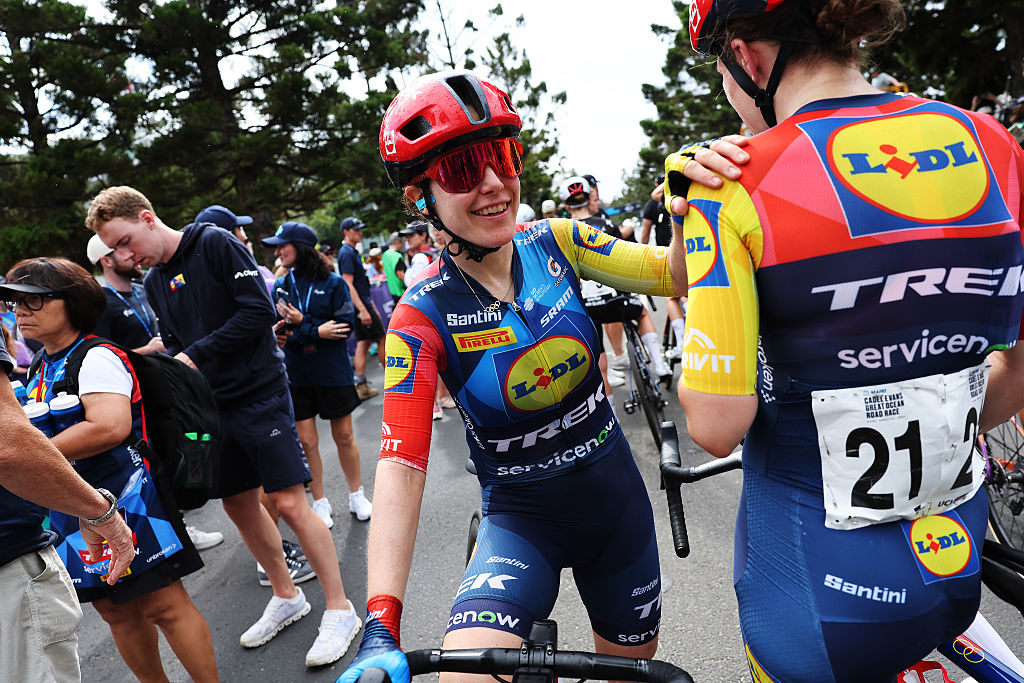UCI introduces mobile X-rays and thermal imaging cameras to fight mechanical doping
New X-ray cabinet created to check for motors and electromagnetic wheels
The latest race content, interviews, features, reviews and expert buying guides, direct to your inbox!
You are now subscribed
Your newsletter sign-up was successful
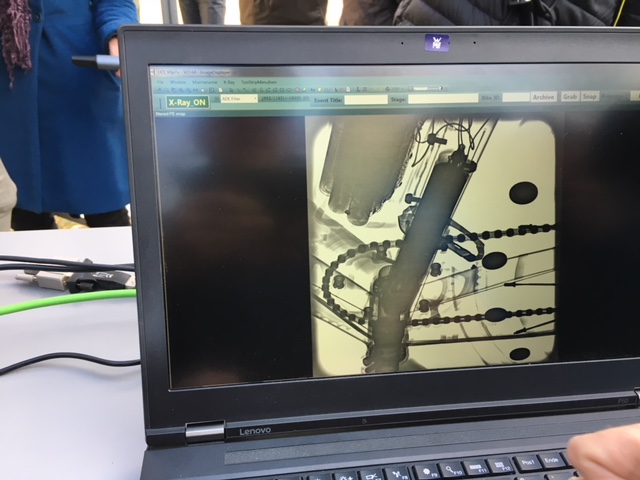
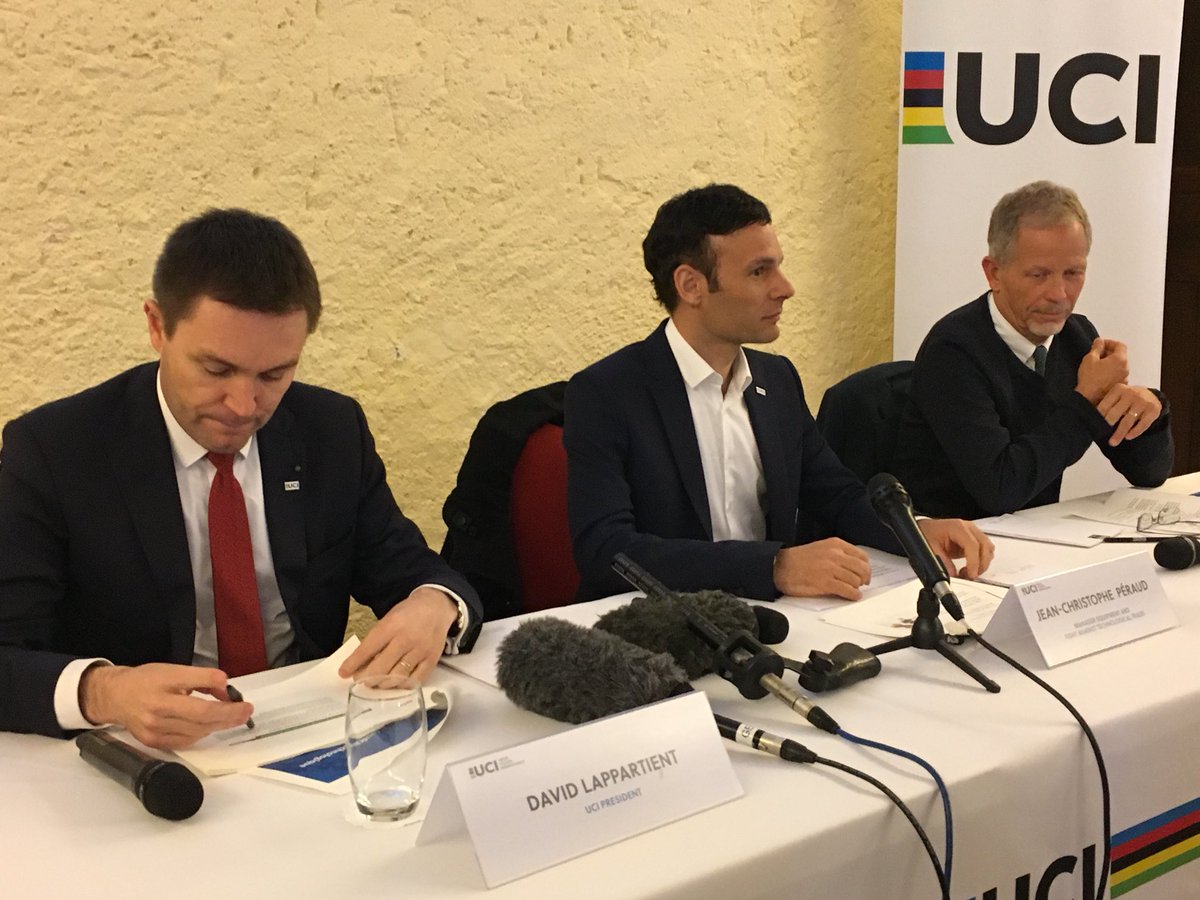
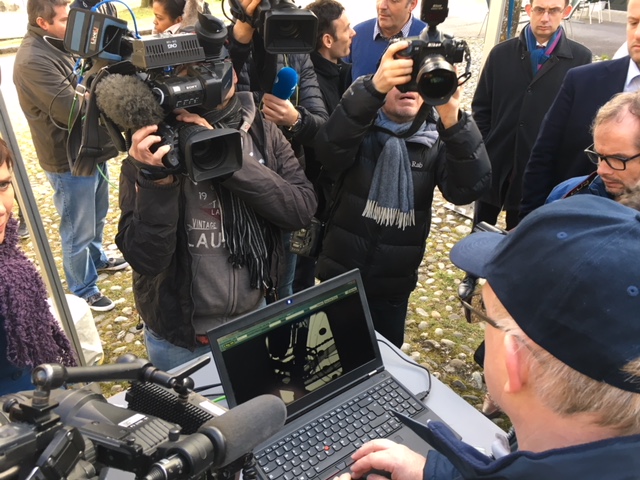
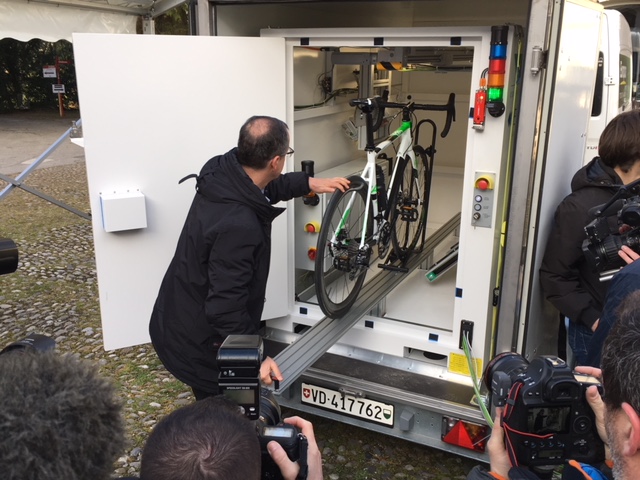
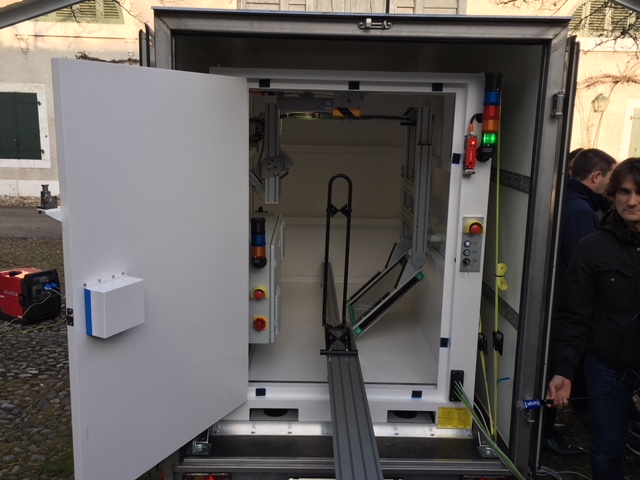
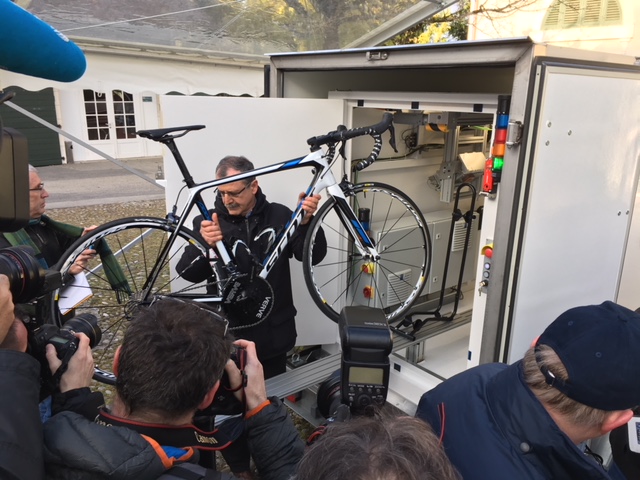
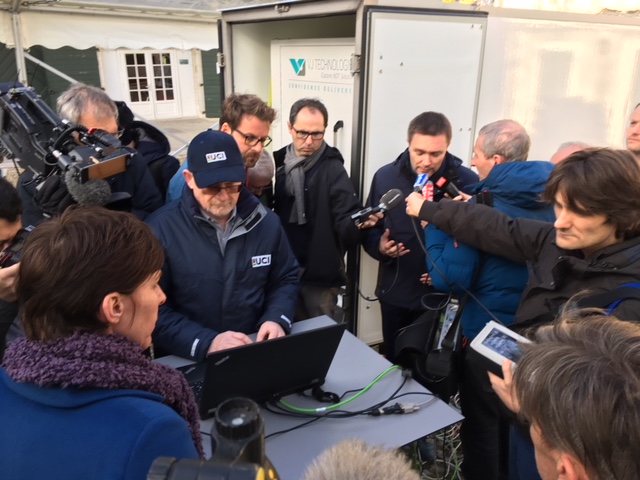
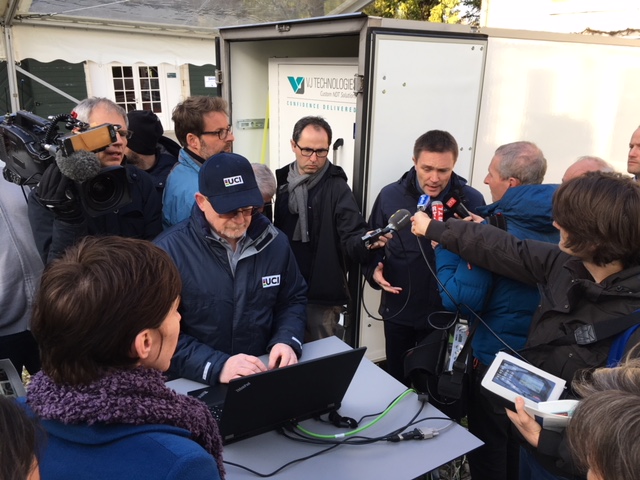
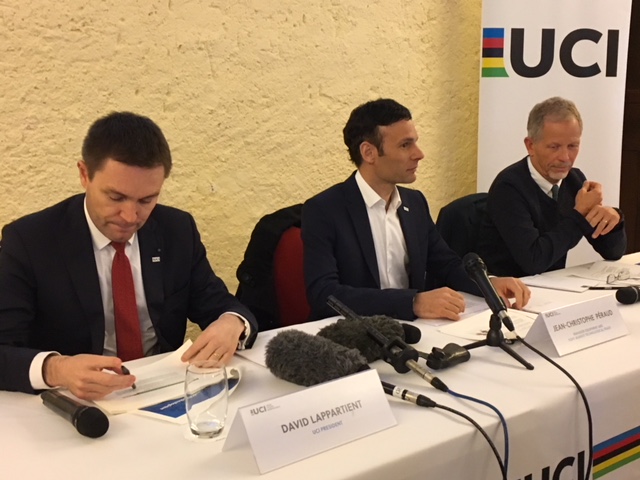
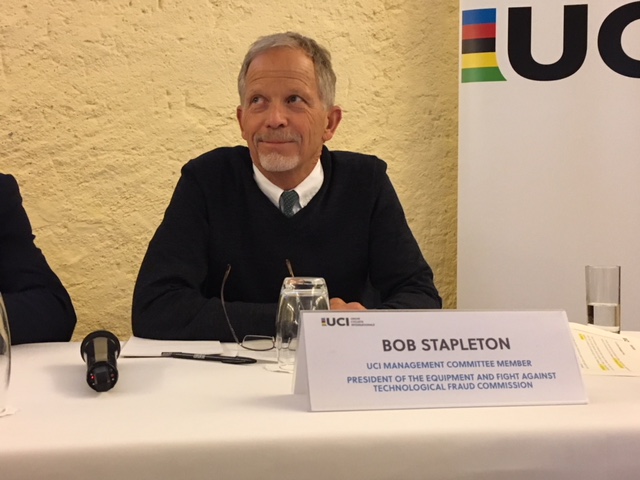
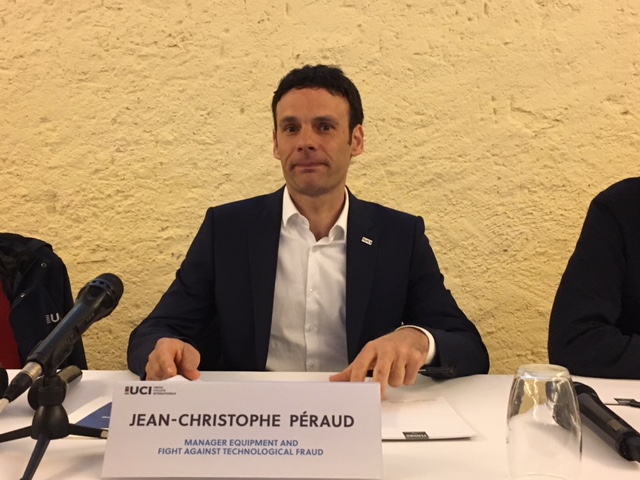
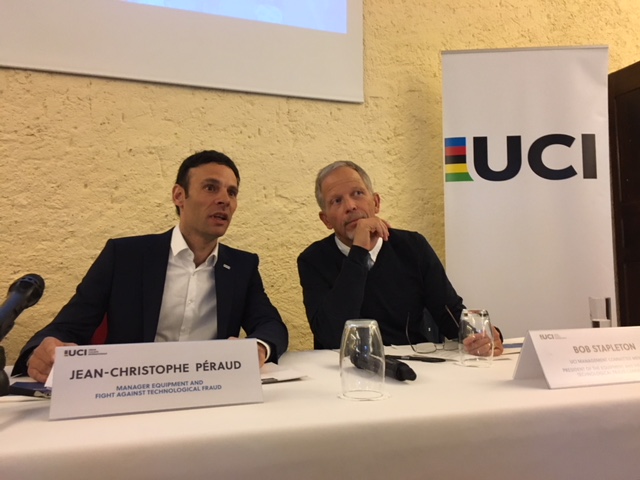
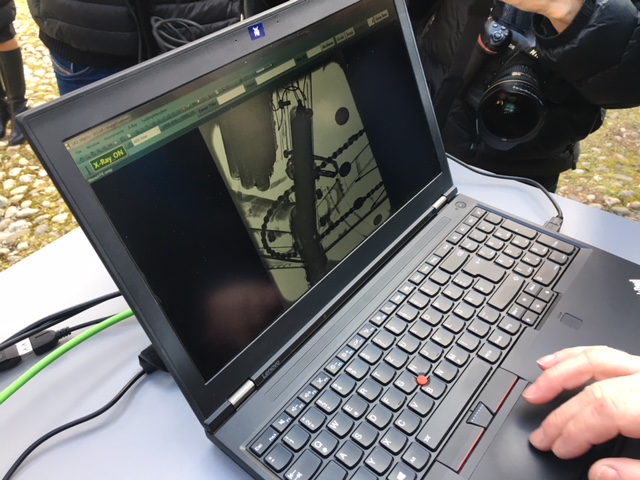
The UCI has announced its new strategy to fight mechanical doping, revealing a series of techniques that include a new mobile X-ray cabinet at major races, the option of thermal imaging cameras in races and the continued use of the magnometric tablet devices, with RFID tagging and the use of miniature magnometer trackers also options for the future.
UCI president David Lappartient listed 'credibility' as one of five key areas in his election manifesto last year, and this includes taking a much stronger stance against mechanical doping in the peloton to stop it being what he described as a "hot topic".
"We're going to do our utmost so that we won't have future cases of technological fraud. The sport has suffered from doping in the past and we don't want our other riders to suffer anymore," Lappartient said at the presentation in Geneva, attended by Cyclingnews.
"Cycling is magnificent sport, one of the most beautiful sports. People must be able to believe in the results; that's why we continue to fight against doping. Technological fraud is easier to resolve than doping. We want to avoid videos on social media that sometimes cast doubts in fans' minds. We want fans to support and believe the results achieved and also by the work done by the UCI. It's our responsibility to guarantee the results and we're determined to do that."
Former UCI president Brian Cookson and the UCI Equipment Manager Mark Barfield first introduced the use of the tablet device to try to detect mechanical doping, but doubts were raised about the validity of the tablet device and its software.
Barfield was soon shown the door when Lappartient beat Cookson to be elected UCI president last September. He quickly hired former French rider Jean-Christophe Péraud as the new UCI Equipment manager, and he worked on the X-ray cabinet machine for the 2018 season. Bob Stapleton, chairman of the board of USA Cycling and newly elected to the UCI Management Committee, is also part of the UCI technical commission and sat alongside Lappartient and Péraud at the presentation in Geneva.
"Technological fraud requires a forceful intervention from UCI before it damages our sport," Stapleton said. "We believe this strategy addresses all fraud scenario and are up the challenge."
The latest race content, interviews, features, reviews and expert buying guides, direct to your inbox!
The UCI claimed the new strategy will ensure that 150 days of racing will be covered by the bike checks in 2018, across road, cyclo-cross, mountain biking and track racing. The UCI said 50 per cent of all WorldTour races would be covered. The UCI has teamed up with VJ Technologies from Lausanne, which already created X-ray devices for the aerospace, defence and automotive industries, to create the new X-ray cabinet. The UCI has ensured the methods and equipment are validated and certified by independent laboratories.
The mobile X-ray cabinet is the UCI's newest weapon against mechanical doping, and the machine was on show after the presentation. It should reveal any hidden motors in the frame and wheels, without dismantling the bike. The X-ray cabinet is made of a protective lead shield in order to ensure safety for the UCI staff carrying out the checks and so respecting national laws regarding X-ray equipment.
The UCI confirmed that it has also teamed up with CEA Tech – part of the French Alternative Energies and Atomic Energy Commission – to work on an small embedded magnometer tracker device. However, this appeared to be very much a work in progress with no clear timeline on its development.
Lappartient confirmed that the study of performance data and television images had also been considered, but will not be used in the short term.
However, to control suspicious wheel and bike changes during races – which perhaps hide mechanical doping systems – the UCI is considering the introduction of RFID tags to track a bicycle or wheels before, during and after the race, is being investigated.
Fines for mechanical doping of technical fraud offences have also been increased. The rider concerned will be suspended for a minimum of six months and fined between CHF 20,000 and CHF 200,000. The rider's team or other entity the rider represents could also be sanctioned and fined between CHF 100,000 and CHF 1,000,000.
In addition to the above, any action or omission by a person or entity subject to the UCI Regulations enabling, encouraging, facilitating, covering up or otherwise intentionally assisting in a technological fraud shall be sanctioned by a suspension of a minimum of six months and a fine of between CHF 5,000 and CHF 200,000.

Stephen is one of the most experienced members of the Cyclingnews team, having reported on professional cycling since 1994. Before becoming Editor-at-large, he was Head of News at Cyclingnews. He has previously worked for Shift Active Media, Reuters and Cycling Weekly. He is a member of the Board of the Association Internationale des Journalistes du Cyclisme (AIJC).
